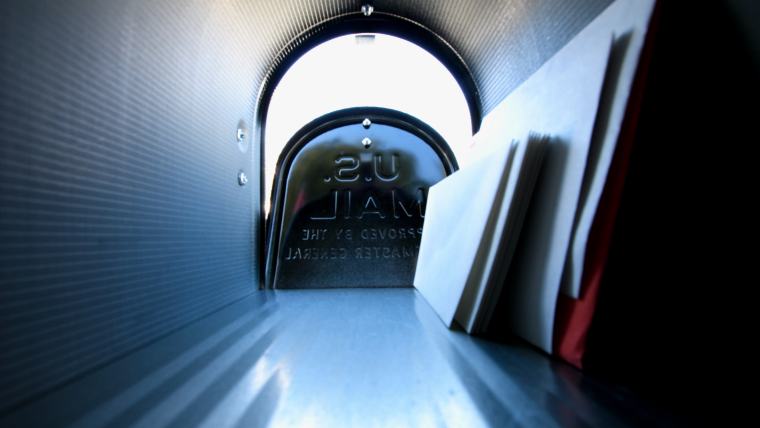How to Make Sure You Get Your Stimulus Money ASAP

If you’re one of the millions of American eligible for a stimulus check as part of the enormous coronavirus relief package, you’re probably anxious to get that money into your bank account as soon as you can.
For quite a few of you, the money may already be there. Treasury Secretary Steven Mnuchin has stated that approximately 80 million people are expected to receive their funds via direct deposit this week. The ones receiving money the fastest are tax filers who have recently provided the IRS with bank account information, primarily those who qualified for a refund on their most recent tax return and opted to receive the funds electronically.
For everyone else, funds will go out by check, shipped to your last known address (likely the address you used on your most recent tax return). Unfortunately, there are some hitches here that may mean you won’t see your funds for a while. Here are some of the possible roadblocks to receiving your stimulus check and how you can potentially speed up the process.
Physical checks will take a while to process and ship
Printing and shipping all those checks is no small task. The current estimate is that about 5 million checks will be shipped each week, starting with recipients with the lowest adjusted gross income. All told, it may take up to 20 weeks for everyone to get their checks.
You can reduce that wait substantially by signing up for direct deposit. Thankfully it’s not a tricky process.
Visit irs.gov/coronavirus/get-my-payment to check the status of your stimulus payment and enter the account information for your preferred checking or savings account. You’ll need to provide some information from your 2019 (or 2018) tax return, so you’ll want to have that on hand.
As you might expect, the site’s been getting a lot of traffic and so the process may take some time. Just be patient – it’ll be worth it if you’re able to successfully switch from paper check to direct deposit.
The IRS may not have the correct address for you
If you haven’t already, now’s a good time to make sure that the Post Office is forwarding mail to the correct address.
If you do receive a paper check, the IRS will use the address you provided on your 2019 or 2018 tax return (if you haven’t filed for 2019 yet). So if you’ve moved permanently or temporarily taken up a new address, you’ll want to get your mail forwarded to ensure you get your check.
You can use the Change of Address form from USPS to get your mail forwarded (even if it’s just temporary). It only costs $1.05. (The Post Office is pretty amazing.)
The IRS may not have the correct bank account information for you
This one’s really important for a number of reasons. To recap – if you received a refund via direct deposit last year (or this year if you’ve already filed your 2019 return) the IRS will automatically send your funds to that bank account.
For a lot people that’s probably fine. But quite a bit has happened in the last few months, and there may some legitimate reasons why you wouldn’t want your stimulus money going into that particular account.
Your bank may be able to use the funds to offset a delinquent debt
The issue here is the presence of a loophole that may allow your bank to use part or all of your economic impact check to cover an old debt.
When Congress passed the CARES Act it specifically exempted personal stimulus funds from being subject to debt collection for debts owed to federal or state agencies, with the single exception of child support. Because this exemption wasn’t also applied to private debt collection, there is at least the possibility that the bank receiving your funds could seize your stimulus check to cover a delinquent account or unpaid fees.
This could even be true if the account is closed. Let’s say you had a checking account with overdraft protection. You could potentially max out your overdraft, never get caught up, and have the account closed with a negative balance. If that’s the account the IRS has on file, there’s a chance the bank in question could apply your stimulus funds towards the negative balance.
Your funds may be going to your tax preparer
Because the IRS is using the banking information associated with your tax refund, there may be some complications if you didn’t receive your refund directly. Every year, millions of filers use third party tax preparation companies like H&R Block to complete and file their returns.
For filers receiving a refund, they have the option to finance the costs of tax preparation with the refund they haven’t actually received yet. This is called a refund anticipation check and it involves the tax preparer having the funds deposited into an often temporary account controlled by the tax preparer. Once the refund arrives, the tax filers gets their money, minus the tax preparer’s fees.
There are also products like refund anticipation loans, which also involve your refund being deposited into an account that isn’t actually yours.
In most cases, if the IRS attempts to make a deposit into one of these kinds of accounts, either the deposit simply won’t go through or whoever controls the account will send the funds back to the IRS.
In a best case scenario, your stimulus check gets delayed even longer. In a worst case scenario, the money never makes it to you at all.
Whatever the situation may be, the solution is the same – visit irs.gov/coronavirus/get-my-payment and make sure the IRS has the right bank account information.
These funds are here to help you get through this incredibly challenging time, so make sure you do what you can to get your share as quickly as possible.
















